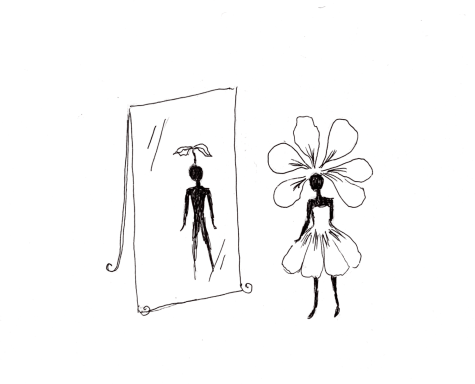Imposter syndrome at Whitman
October 7, 2021

Whitties, I think we’re all trying a little too hard. I don’t mean that we all need to stop thinking of our futures and aiming to succeed, but that we tend to try to prove our smarts to our peers a little too often. The casual grade comparing, did-you-apply-test-optional conversations and weird major/difficulty hierarchy is not productive; it’s an endless cycle.
Of course, I’m curious about how my friends did on the SAT and if my essay grade was above the class average, that’s normal. It becomes a problem once we pass the curiosity standpoint and start using these comparisons as a threshold for our personal self-worth. It builds an indirect competitive nature that feeds off of itself.
At some point during my first year at Whitman, my Encounters professor asked my class if we had ever heard of imposter syndrome. Essentially, imposter syndrome is the sneaky little thoughts that flood our brains making us question what the heck we are doing in Walla Walla. The pressure to achieve becomes too much, to the point where you feel like you made it to this point by mistake or by accident.
Imposter syndrome can look and feel different for every person, but it all stems from the feeling that you are not as competent as your peers perceive you to be, or that you don’t belong in the group you are with. Getting cold-called and giving the correct answer, but convincing yourself that it was pure happenstance. It could present itself in the form of test anxiety. The possibilities are endless.
I imagine every college-age student has these sorts of thoughts on occasion, at least. Whitman College is no exception. The sense of community created by the small-college feel is diminished by the outward comparing of our buried insecurities. We’ve created our own small-college environment; one that is welcoming and understanding but also secretly competitive.
Before I come across as too harsh, I want to acknowledge that Whitman does have a great sense of community among its students. There are stories of students at big schools ripping out pages of textbooks so that other students can’t read them, or students actively not helping their peers so they can stay ahead. As far as I’m aware, Whitman has none of that—thank goodness.
With that quick disclaimer out of the way, there’s no denying that the students at Whitman don’t play into the competitive nature of college; we just do it a different way. Rather than tear down our peers to feel more confident, we simply build ourselves up.
Whitman students are smart people; we all got in and now we’re all here. Generally speaking, students are nice here; no one would openly and intentionally set up a fellow Whittie for failure. So, our how-did-I-end-up-here angst is channeled into a different type of competitive—one-upping.
It happens so casually; it’s easy to slip into a conversation and do the trick of convincing your peers you’ve done something cooler than them. “You’ve been to four countries? That’s so fun! I’ve been to 9 though.” “You have 20 pages of reading to do? That sucks, but I have 2 essays and a test tomorrow; that’s way worse.” “Professor X likes you? That’s so cute! But he’s my advisor and we get coffee together every week.”
We all do it, it’s impossible not to when it’s happening on all sides at rapid-fire. One person commenting on how they’ve accomplished more things makes you feel like you need to assert that same dominance somewhere else. So… let’s all take a nice deep breath. We’re all smart people, we’ve all done cool things. But these feelings of insecurity and lack of belonging won’t go away until we stop being so aggressive. I don’t know what we’re competing for, but it’s not a competition.





Jane Hillemann • Oct 27, 2021 at 4:03 pm
Very well written! I remember years ago feeling like an imposter at times while at UCLA ! It is a sense of inner panic that may be reinforced by not knowing a fact that you should have known or socially stoked as you have described. I do think professors should address this very early on and have an up front discussion with freshmen students on how it manifests and strategies to manage it!
William O'Flaherty • Oct 10, 2021 at 5:41 am
I hope you opened up some eyes. Good writing.